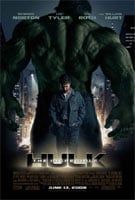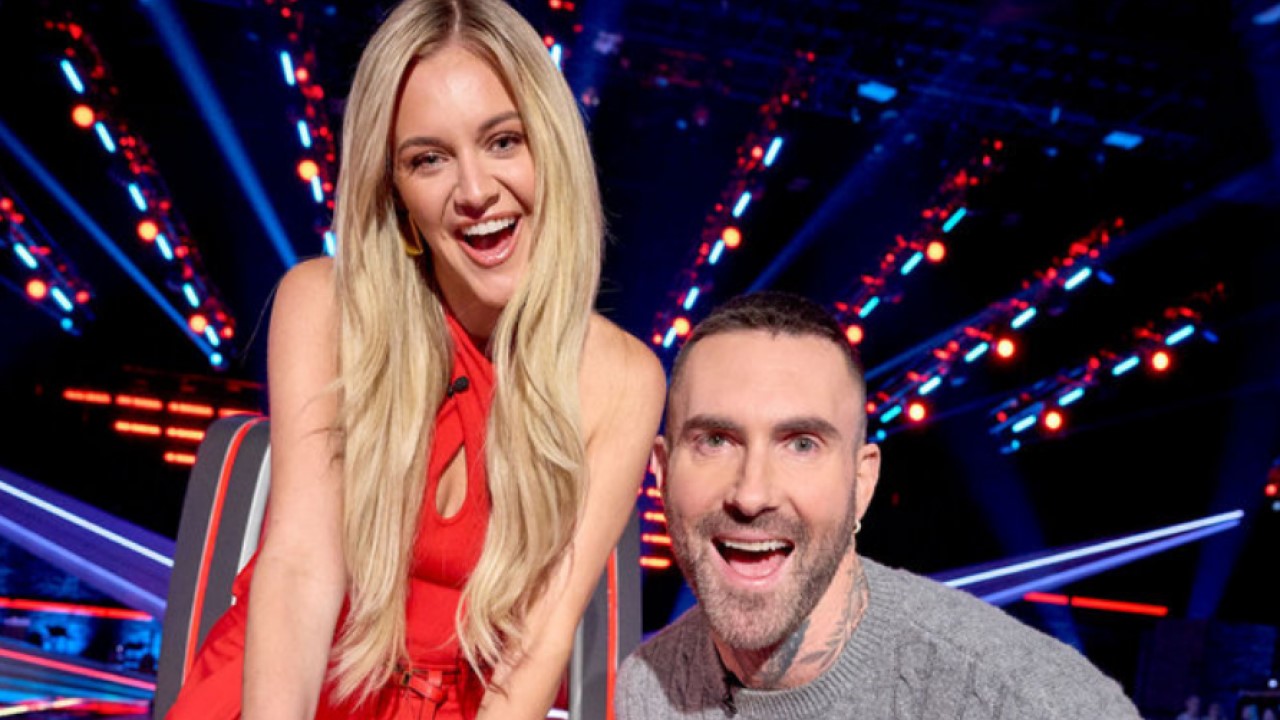Marvel’s new take on the Incredible Hulk starts by pretending their old take, the 2003 movie by Ang Lee, doesn’t exist. It stops just short of being a total do over, only in that this new version skips over the obligatory origin story, choosing instead to cover it via a hasty recap underneath the movie’s opening credits. If it’s a sequel to anything, then The Incredible Hulk owes its allegiance to the late 70s, early 80s television series starring Lou Ferrigno and Bill Bixby. For better or worse, the movie is steeped in the nostalgia of that forgotten network program (both Bixby and Ferrigno make cameos… of a sort), right down to Edward Norton’s wardrobe and his character’s proclivity for wandering the countryside sallow and alone. At times the film actually feels like a grouping of several serialized episodes, only with markedly better special effects.
Fans who remember Lou Ferrigno painted up green will no doubt find thrills in this new movie. This is clearly a film for the most ardent of Hulkamaniacs, the same people who were most disappointed by Ang Lee’s thoughtful, introspective take on the character. In response to their lust for Hulk smash, all pretense of depth has been tossed right out the window to deliver a light and airy popcorn movie full of all those watermarks Hulk fans clamor after, while being woefully short on many of the things anyone looking for a more complete movie experience might wish for.
The aforementioned Ed Norton plays doctor Bruce Banner this time around. We join him in hiding, and the movie is in no particular rush to get him out in the open. That’s good, since the film works best when we’re watching Banner alone in the woods. Eventually though, he’s forced to return home in pursuit of a cure for the green beast which ails him, and in pursuit of the woman he loves: one Betty Ross (Liv Tyler). Very little is actually asked of Norton or Tyler. Ed spends the vast majority of The Incredible Hulk staring silently, or breathing heavily to keep caged the beast inside him. Liv gives a solid performance as his besotted girlfriend, though even she seems to spend most of the movie wide-eyed and mute. There’s limited depth written in here for either character, and that’s not their fault. Banner is defined primarily by his need to keep moving, and Betty is defined by her need to move after him. There’s little more to either of them than that, and the few times when the script strives for more it’s quickly glossed over or doused by the inexplicable rain which invariable pours down from the heavens (perhaps as a stand-in for the genuine emotion the movie fails to conjure) whenever they’re reunited… sometimes even on a bright and sunny day.
Hot on Banner’s trail is the obsessed general Thunderbolt Ross (William Hurt), Betty’s estranged father and the guy the army has tasked with capturing Banner and copying his affliction to create a new breed of super soldiers. If there’s a major problem with Incredible Hulk, it’s his character. Thunderbolt is on camera more than any other cast member, yet he never makes a whole lot of sense. He’s wildly inconsistent. One moment he displays a blatant disregard for innocent life, the next he’s contradicting everything he’s said he stands for to protect it against his own utterly predictable failures. Thunderbolt never quite gels, and seems motivated only by some vague vendetta which is never properly explained.
Eventually it all culminates in one of those big, obligatory, superhero movie, New York City street brawls in which the Hulk mast face off against his equal and opposite. Apparently the bad guys never want to fight in Denver or Dallas. There’s not much in it you haven’t seen before. Cars are thrown and streets are smashed. The CGI is adequate yet obvious, and really no better than what we saw five years ago in Ang Lee’s movie. The movie’s final fight scene has been touted heavily, and there have even been claims that it’s 26 minutes long. I didn’t time it, but the scene I watched seemed to last about 5 minutes. Regardless of length, Louis Letterier delivers plenty of nice wide shots to let you see what’s going on during the action, though he never seems to linger on any part of a fight long enough for us to get truly involved.
Rather than letting us latch on to the fights, Letterier uses Hulk’s battles (his final one in particular) as opportunities to treat fans to more geeky asides, all of which will no doubt have them quivering in their feetie pajamas and clutching their vintage Hulk lunchboxes with glee, and it’s those moments and references to other things which are often the most fun throughout the film. In fact my favorite scene comes in the movie’s closing minutes, when Robert Downey Jr. finally shows up for his much talked about Tony Stark cameo. I’m not sure what it says about a movie when the best things in it are references to other things, but it probably doesn’t say anything particularly good.
For the most part, I think The Incredible Hulk accomplishes exactly what it sets out to do. It simply isn’t out to accomplish much. This isn’t a particularly ambitious or subtle film, it exists primarily to tickle the nostalgia-bones of moviegoers who are already invested in the history of this character and his world. There’s nothing wrong with that I suppose, and it’s done well enough that no doubt Hulk fans will enjoy the hell out of it and then overrate it to everyone else. If you’re part of that everyone else, feel free to stay home.












